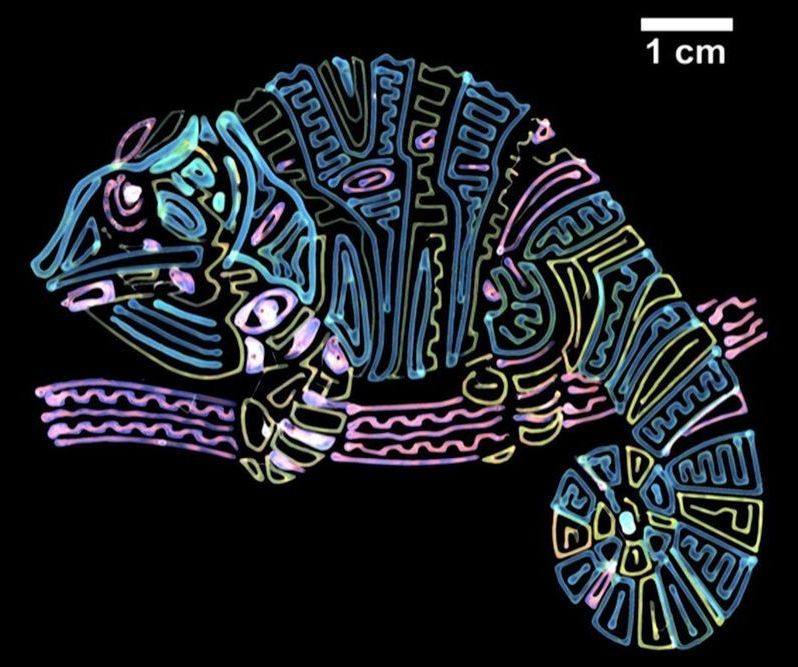Brilliantly colored chameleons, butterflies, opals—and now some 3D-printed materials—reflect color by using nanoscale structures called photonic crystals.
A new study that demonstrates how a modified 3D-printing process provides a versatile approach to producing multiple colors from a single ink is published in the journal Science Advances.
Some of the most vibrant colors in nature come from a nanoscale phenomenon called structural coloration. When light rays reflect off these periodically placed structures located in the wings and skins of some animals and within some minerals, they constructively interfere with each other to amplify certain wavelengths and suppress others. When the structures are well ordered and small enough—about a thousand times smaller than a human hair, the researchers said—the rays produce a vivid burst of color.
